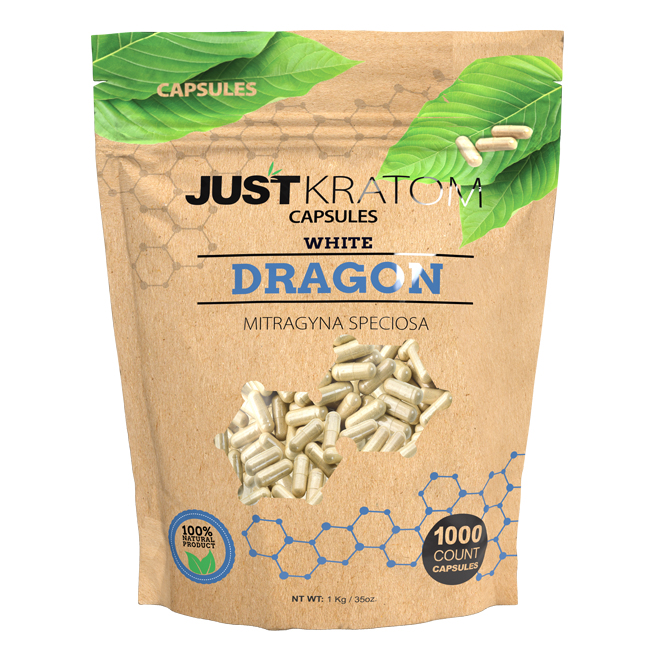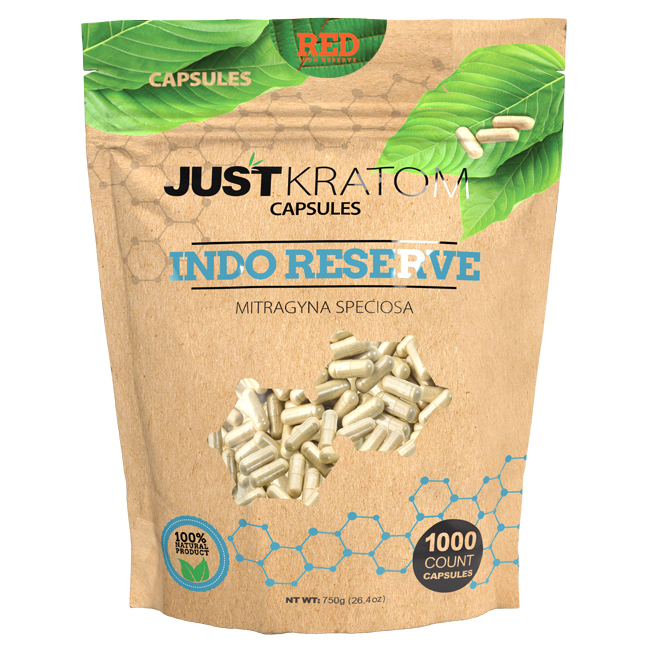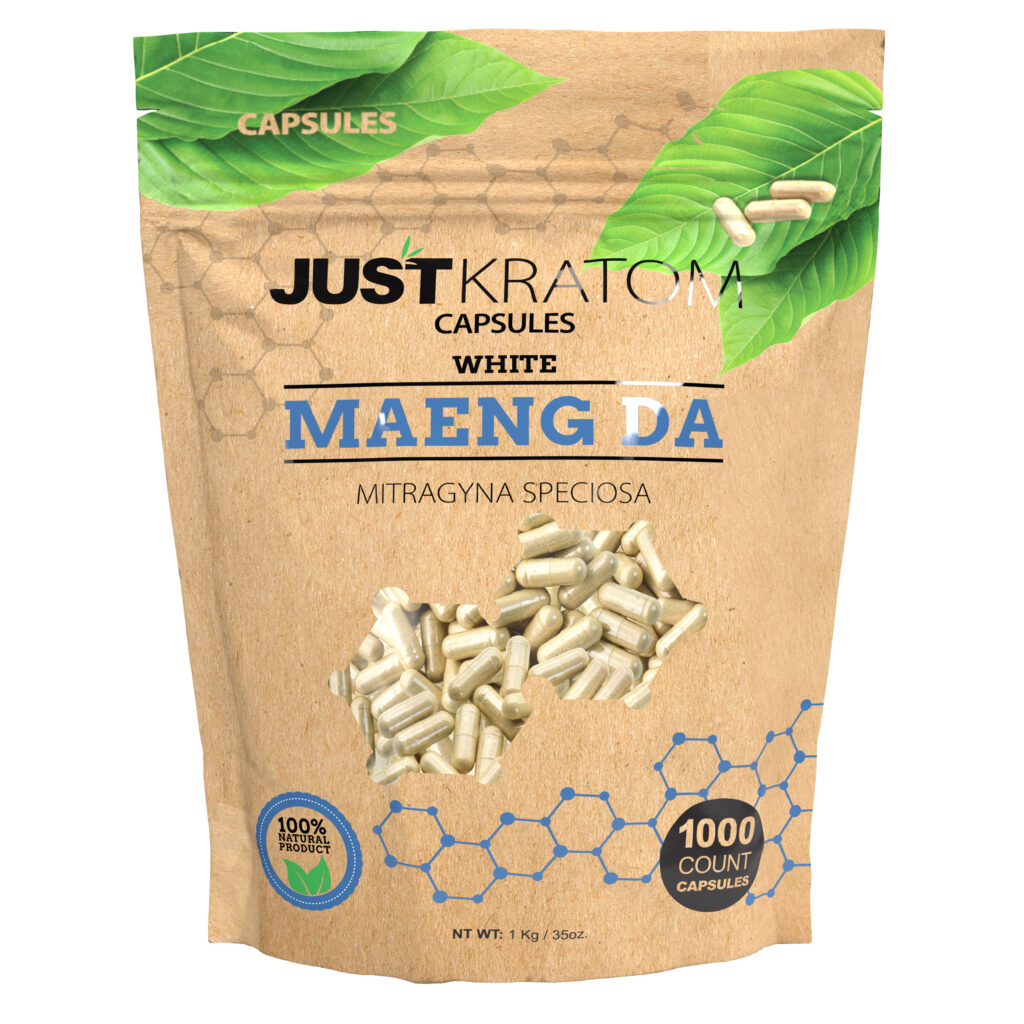What is Kratom and How Does it Work?
Kratom, a tropical evergreen tree native to Southeast Asia, has gained popularity in recent years as a natural remedy for various ailments, including fatigue and pain. Derived from the leaves of this tree, kratom contains psychoactive compounds called mitragynine and 7-hydroxymitragynine, which interact with opioid receptors in the brain. These compounds are believed to produce effects ranging from mild stimulation to relaxation, depending on the dosage.
Kratom’s Chemical Composition
Kratom is a tropical evergreen tree native to Southeast Asia. Its leaves contain psychoactive compounds that have various effects on the human body and mind.
The primary active ingredients in kratom are mitragynine and 7-hydroxymitragynine. These compounds act as alkaloids, meaning they interact with certain receptors in the brain. Specifically, they bind to opioid receptors, which are involved in pain perception, pleasure, and mood regulation.
Depending on the dosage consumed, kratom can produce a range of effects. Low doses are believed to stimulate the central nervous system, leading to increased energy, alertness, and focus. Higher doses may induce relaxation, euphoria, and pain relief, similar to the effects of opioids.
Mechanism of Action on the Brain
Kratom is a tropical evergreen tree native to Southeast Asia. Its leaves contain psychoactive compounds that have various effects on the human body and mind.
The primary active ingredients in kratom are mitragynine and 7-hydroxymitragynine. These compounds act as alkaloids, meaning they interact with certain receptors in the brain. Specifically, they bind to opioid receptors, which are involved in pain perception, pleasure, and mood regulation.
Depending on the dosage consumed, kratom can produce a range of effects. Low doses are believed to stimulate the central nervous system, leading to increased energy, alertness, and focus. Higher doses may induce relaxation, euphoria, and pain relief, similar to the effects of opioids.
Potential Benefits for Mental Clarity
Many individuals seek natural ways to enhance mental clarity and focus. Kratom capsules, derived from the leaves of a tropical evergreen tree native to Southeast Asia, have emerged as a potential solution for those seeking improved cognitive function.
Enhanced Focus and Concentration
Proponents of kratom suggest that its alkaloids, particularly mitragynine, may contribute to enhanced mental clarity and focus. These compounds are thought to influence neurotransmitters in the brain, potentially leading to increased alertness and concentration.
Some users report experiencing improved cognitive performance, including sharper thinking and better attention span after consuming kratom.
However, it is important to note that research on kratom’s effects on mental clarity and focus is limited and further scientific investigation is needed to confirm these claims.
Improved Cognitive Function
Kratom capsules offer potential benefits for mental clarity and improved cognitive function.

The alkaloids in kratom, particularly mitragynine, are believed to influence neurotransmitters in the brain, potentially leading to increased alertness and concentration.
Many users report experiencing improved cognitive performance, including sharper thinking and better attention span after consuming kratom.
Reduced Mental Fatigue
Kratom capsules, derived from the leaves of a tropical evergreen tree native to Southeast Asia, have emerged as a potential solution for those seeking improved cognitive function. Proponents suggest that its alkaloids, particularly mitragynine, may contribute to enhanced mental clarity and focus. These compounds are thought to influence neurotransmitters in the brain, potentially leading to increased alertness and concentration.
- Increased Alertness: Kratom’s stimulant properties may lead to a heightened state of awareness and responsiveness.
- Improved Focus: Some users report experiencing sharper thinking and an enhanced ability to concentrate after consuming kratom.
It is important to note that research on kratom’s effects on mental clarity and focus is limited and further scientific investigation is needed to confirm these claims.
Scientific Evidence and Research
Kratom capsules, derived from the leaves of a tropical evergreen tree native to Southeast Asia, have emerged as a potential solution for those seeking improved cognitive function. Proponents suggest that its alkaloids, particularly mitragynine, may contribute to enhanced mental clarity and focus. These compounds are thought to influence neurotransmitters in the brain, potentially leading to increased alertness and concentration.
Studies on Kratom and Cognitive Enhancement
Kratom’s potential for cognitive enhancement is an area of ongoing research and discussion. Studies investigating the effects of kratom on cognitive function are limited, making it difficult to draw definitive conclusions about its efficacy.
Some pre-clinical studies suggest that kratom alkaloids, particularly mitragynine, may have neuroprotective properties and influence neurotransmitters associated with cognition, such as dopamine and acetylcholine. These findings provide a basis for exploring kratom’s potential benefits for cognitive function.
However, human studies are needed to confirm these preliminary findings and determine the optimal dosages and long-term effects of kratom on cognitive performance in humans. It is crucial to note that kratom can have adverse effects, and its use should be approached with caution and under the guidance of a healthcare professional.
Limitations of Existing Research
While anecdotal evidence suggests that kratom may enhance mental clarity and focus, scientific research on this topic is limited.
A primary limitation is the lack of large-scale, well-controlled human studies investigating kratom’s cognitive effects.
Most available research relies on small sample sizes, making it difficult to generalize findings to the broader population.
Furthermore, many studies have methodological limitations, such as a lack of placebo controls or objective measures of cognitive performance.
Another challenge is kratom’s variable alkaloid composition, which can differ significantly between batches and even leaves from the same plant.
This variability makes it difficult to determine precise dosages and understand the specific contributions of different alkaloids to potential cognitive effects.
Finally, research on kratom’s long-term effects on cognition is scarce. It is unclear whether chronic kratom use may have any detrimental impacts on brain function.
The existing evidence regarding kratom’s impact on mental clarity and focus is insufficient to draw definitive conclusions.
More rigorous research is needed to fully understand the potential benefits and risks associated with kratom use for cognitive enhancement.
Dosage and Administration of Kratom Capsules
Kratom capsules, derived from the leaves of a tropical evergreen tree native to Southeast Asia, have gained popularity as a potential aid for enhancing mental clarity and focus. Proponents suggest that kratom’s alkaloids, particularly mitragynine, may influence neurotransmitters in the brain, potentially leading to increased alertness and concentration.
Recommended Dosage for Mental Clarity
Determining the appropriate dosage of kratom capsules for improved mental clarity is complex and individualistic. Factors such as body weight, metabolism, tolerance, and desired effects influence dosage requirements.
It’s generally recommended to start with a low dose (1-2 grams) and gradually increase it until the desired effects are achieved while monitoring for any adverse reactions.
Remember that exceeding recommended dosages can lead to unwanted side effects, including nausea, dizziness, and anxiety.
Consulting with a healthcare professional is crucial before using kratom, as they can provide personalized guidance based on your individual circumstances and health history.
Different Strains and Their Effects
Kratom capsules offer potential benefits for mental clarity and improved cognitive function. The alkaloids in kratom, particularly mitragynine, are believed to influence neurotransmitters in the brain, potentially leading to increased alertness and concentration. Many users report experiencing improved cognitive performance, including sharper thinking and better attention span after consuming kratom.
Determining the appropriate dosage of kratom capsules for improved mental clarity is complex and individualistic. Factors such as body weight, metabolism, tolerance, and desired effects influence dosage requirements. It’s generally recommended to start with a low dose (1-2 grams) and gradually increase it until the desired effects are achieved while monitoring for any adverse reactions. Exceeding recommended dosages can lead to unwanted side effects, including nausea, dizziness, and anxiety.
Consulting with a healthcare professional is crucial before using kratom, as they can provide personalized guidance based on your individual circumstances and health history.
Different strains of kratom produce varying effects due to differences in alkaloid profiles. Some popular strains include:
- Maeng Da: Known for its energizing and stimulating properties, often used for focus and productivity.
- Green Vein Bali: Offers a balanced effect, combining stimulation with relaxation, suitable for stress relief and mood enhancement.
- Red Vein Borneo: Predominantly relaxing and pain-relieving, often used for managing anxiety and promoting sleep.
Safety and Side Effects
Like any substance that interacts with the body, kratom can have side effects. Potential side effects range from mild to severe and can vary depending on dosage, individual sensitivity, and other factors. It’s essential to be aware of these potential risks before using kratom capsules.
Potential Risks and Adverse Reactions
Kratom’s potential side effects can vary widely based on dosage, individual sensitivity, and other factors. It’s crucial to be aware of these risks before using kratom capsules.
Some common side effects include:
- Nausea
- Dizziness
- Constipation
- Increased heart rate
- Anxiety
- Headaches
In some cases, higher doses or prolonged use can lead to more serious adverse reactions, such as:
- Respiratory depression
- Seizures
- Liver damage
It’s important to note that kratom can be addictive. Regular use can lead to dependence and withdrawal symptoms when attempting to stop.
Kratom should not be used by individuals with pre-existing conditions like heart disease, liver problems, or substance use disorders without consulting a healthcare professional first.
Contraindications and Interactions with Other Substances
While kratom capsules are touted for potential mental clarity benefits, it’s crucial to understand the associated safety concerns and potential interactions.
Kratom can cause various side effects ranging from mild (nausea, dizziness) to severe (respiratory depression, liver damage). These risks increase with higher doses or prolonged use.
Kratom’s interaction with other substances is not well-understood and can be potentially dangerous. It may amplify the effects of certain medications, including opioids, antidepressants, and benzodiazepines. It’s essential to consult a healthcare professional before using kratom if you are taking any other medications.
Individuals with pre-existing health conditions like heart disease, liver problems, or substance use disorders should avoid kratom due to the potential for adverse interactions and complications.
Kratom’s addictive nature necessitates caution. Regular use can lead to dependence and withdrawal symptoms. It’s crucial to approach kratom with awareness and moderation.
Legal Status and Regulations
The legal status of kratom varies widely depending on the country or region. In some places, it is entirely legal and readily available, while in others, it is banned outright. Regulations surrounding kratom are constantly evolving, so it’s essential to research the specific laws in your area before using it.

Kratom Legality Around the World
Kratom legality is complex and varies significantly around the world.
- Legalized: Many countries, particularly in Southeast Asia where kratom originates, have legalized its use. Some European countries, such as Poland and Czech Republic, also permit kratom sales.
- Restricted: Several nations have implemented restrictions on kratom, including bans on sale or cultivation. These include countries like Malaysia, Thailand, Australia, and parts of the United States.
- Unregulated/Grey Areas: Many countries lack clear regulations regarding kratom, leaving its legal status ambiguous.
Within the United States, kratom’s legal status is fragmented.
- Banned: Several states, including Alabama, Arkansas, Rhode Island, and Indiana, have outright banned kratom.
- Restricted: Other states have implemented regulations or restrictions on the sale and distribution of kratom.
- Legal: The majority of U.S. states currently allow kratom sales, though some may have local ordinances that further regulate it.
The ongoing debate surrounding kratom’s legality stems from conflicting opinions regarding its potential benefits and risks. Proponents argue for its medicinal applications, while opponents raise concerns about its addictive nature and potential for abuse.
It is crucial to stay informed about the latest developments in kratom legislation within your specific location to ensure compliance with local laws and regulations.
Regulations and Restrictions on Sale and Use
Kratom capsules offer potential benefits for mental clarity and improved cognitive function. The alkaloids in kratom, particularly mitragynine, are believed to influence neurotransmitters in the brain, potentially leading to increased alertness and concentration. Many users report experiencing improved cognitive performance, including sharper thinking and better attention span after consuming kratom.
Determining the appropriate dosage of kratom capsules for improved mental clarity is complex and individualistic. Factors such as body weight, metabolism, tolerance, and desired effects influence dosage requirements. It’s generally recommended to start with a low dose (1-2 grams) and gradually increase it until the desired effects are achieved while monitoring for any adverse reactions. Exceeding recommended dosages can lead to unwanted side effects, including nausea, dizziness, and anxiety.
Consulting with a healthcare professional is crucial before using kratom, as they can provide personalized guidance based on your individual circumstances and health history.
Different strains of kratom produce varying effects due to differences in alkaloid profiles. Some popular strains include:
- Maeng Da: Known for its energizing and stimulating properties, often used for focus and productivity.
- Green Vein Bali: Offers a balanced effect, combining stimulation with relaxation, suitable for stress relief and mood enhancement.
- Red Vein Borneo: Predominantly relaxing and pain-relieving, often used for managing anxiety and promoting sleep.
Like any substance that interacts with the body, kratom can have side effects. Potential side effects range from mild to severe and can vary depending on dosage, individual sensitivity, and other factors. It’s essential to be aware of these potential risks before using kratom capsules.
Kratom’s potential side effects can vary widely based on dosage, individual sensitivity, and other factors. It’s crucial to be aware of these risks before using kratom capsules.
Some common side effects include:
- Nausea
- Dizziness
- Constipation
- Increased heart rate
- Anxiety
- Headaches
In some cases, higher doses or prolonged use can lead to more serious adverse reactions, such as:
- Respiratory depression
- Seizures
- Liver damage
It’s important to note that kratom can be addictive. Regular use can lead to dependence and withdrawal symptoms when attempting to stop.
Kratom should not be used by individuals with pre-existing conditions like heart disease, liver problems, or substance use disorders without consulting a healthcare professional first.
While kratom capsules are touted for potential mental clarity benefits, it’s crucial to understand the associated safety concerns and potential interactions.
Kratom can cause various side effects ranging from mild (nausea, dizziness) to severe (respiratory depression, liver damage). These risks increase with higher doses or prolonged use.
Kratom’s interaction with other substances is not well-understood and can be potentially dangerous. It may amplify the effects of certain medications, including opioids, antidepressants, and benzodiazepines. It’s essential to consult a healthcare professional before using kratom if you are taking any other medications.
Individuals with pre-existing health conditions like heart disease, liver problems, or substance use disorders should avoid kratom due to the potential for adverse interactions and complications.
The legal status of kratom varies widely depending on the country or region. In some places, it is entirely legal and readily available, while in others, it is banned outright. Regulations surrounding kratom are constantly evolving, so it’s essential to research the specific laws in your area before using it.
Kratom legality is complex and varies significantly around the world.
- Legalized: Many countries, particularly in Southeast Asia where kratom originates, have legalized its use. Some European countries, such as Poland and Czech Republic, also permit kratom sales.
- Restricted: Several nations have implemented restrictions on kratom, including bans on sale or cultivation. These include countries like Malaysia, Thailand, Australia, and parts of the United States.
- Unregulated/Grey Areas: Many countries lack clear regulations regarding kratom, leaving its legal status ambiguous.
Within the United States, kratom’s legal status is fragmented.
- Banned: Several states, including Alabama, Arkansas, Rhode Island, and Indiana, have outright banned kratom.
- Restricted: Other states have implemented regulations or restrictions on the sale and distribution of kratom.
- Legal: The majority of U.S. states currently allow kratom sales, though some may have local ordinances that further regulate it.
The ongoing debate surrounding kratom’s legality stems from conflicting opinions regarding its potential benefits and risks. Proponents argue for its medicinal applications, while opponents raise concerns about its addictive nature and potential for abuse.
It is crucial to stay informed about the latest developments in kratom legislation within your specific location to ensure compliance with local laws and regulations.
Alternative Options for Mental Clarity
Please note: This text provides information about kratom, but it is not medical advice. Always consult with a healthcare professional before using kratom or making any changes to your health routine.
Kratom capsules offer potential benefits for mental clarity and improved cognitive function. The alkaloids in kratom, particularly mitragynine, are believed to influence neurotransmitters in the brain, potentially leading to increased alertness and concentration.
While research on kratom’s effects on mental clarity and focus is still limited, some users report experiencing improvements in their cognitive performance.
Before using kratom, it’s essential to understand its potential risks and side effects. Kratom can have various adverse effects ranging from mild (nausea, dizziness) to severe (respiratory depression). It may also interact with other medications.
Moreover, kratom has addictive potential, and regular use can lead to dependence and withdrawal symptoms.

Kratom’s legality is complex and varies significantly around the world. In some countries, it is legal and readily available, while in others, it is banned outright.
It’s crucial to research the specific laws in your area before using kratom to ensure compliance.
Other Natural Supplements and Remedies
Please remember that this information is for general knowledge and shouldn’t be taken as medical advice. It is important to consult with a healthcare professional before considering any new supplement, especially one with potential side effects like kratom.
Lifestyle Changes for Improved Focus
This is a good overview of kratom and its potential effects on mental clarity. You have covered a wide range of topics, from the botanical aspects and claimed benefits to potential risks, side effects, legality, and dosage considerations.
Here are some suggestions to further enhance your article:
* **Strengthen Evidence:** While you mention that research is limited, consider adding specific examples of studies or areas where more research is needed. You could cite existing research findings to support your claims about kratom’s potential cognitive benefits and risks.
* **Clarify Dosage Information:**
* Provide a clearer explanation of dosage guidelines beyond “1-2 grams.” Factors like body weight, experience level, and desired effects can significantly influence optimal dosage.
* Emphasize the importance of starting with low doses and gradually increasing them under medical supervision.
* **Expand on Side Effects:** You list common side effects but could delve deeper into their severity and potential long-term consequences.
* Explain how different strains might have varying side effect profiles.
* Discuss the risks associated with prolonged use or misuse.
* **Address Withdrawal:** Provide more detail about kratom withdrawal symptoms and the steps individuals should take if they want to stop using it.
* **Legal Landscape Detail:**
* Instead of listing general categories, provide specific examples of countries where kratom is legal/banned/restricted. This will give readers a clearer understanding of the global landscape.
* **Highlight Alternatives:** Suggesting alternative options for improving mental clarity (exercise, meditation, healthy diet, sleep hygiene) could provide readers with a broader perspective on cognitive enhancement strategies.
* **Professional Guidance:** Stress repeatedly that consulting a healthcare professional is crucial before using kratom, especially for individuals with pre-existing health conditions or who are taking medications.
By incorporating these suggestions, you can create a more comprehensive and informative article about kratom capsules and mental clarity.
Buy premium Kratom capsules today
- Navigating Love When Your Partner Identifies Differently - June 4, 2025
- Lip Filler What To Do After - June 3, 2025
- The Emotional Manipulation Of Breadcrumbing In Dating Culture - June 2, 2025

